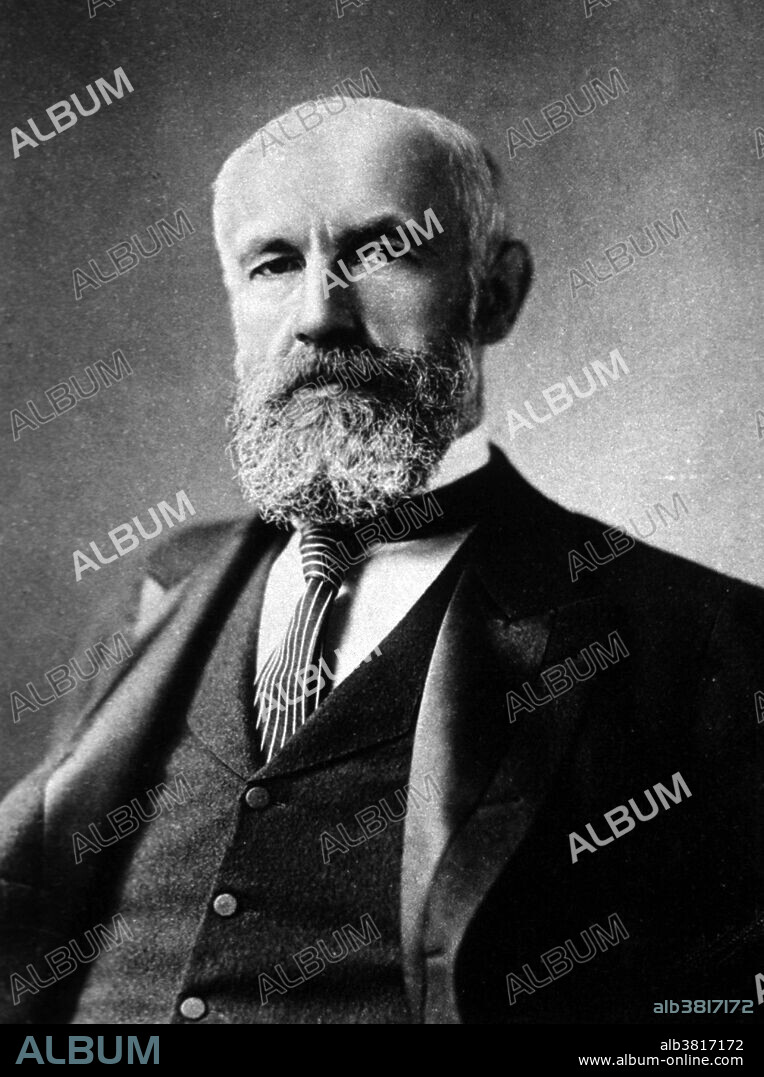alb3817172
G. Stanley Hall, American Psychologist

|
Añadir a otro lightbox |
|
Añadir a otro lightbox |



¿Ya tienes cuenta? Iniciar sesión
¿No tienes cuenta? Regístrate
Compra esta imagen

Título:
G. Stanley Hall, American Psychologist
Descripción:
Traducción automática: Granville Stanley Hall (1 de febrero de 1844 - 24 de abril de 1924) fue un psicólogo y educador estadounidense pionero. Sus intereses se centraron en el desarrollo infantil y la teoría evolutiva. En 1887, Hall fundó el American Journal of Psychology y en 1892 fue nombrado primer presidente de la Asociación Estadounidense de Psicología. En 1889, fue nombrado primer presidente de la Universidad Clark, cargo que ocupó hasta 1920. Desempeñó un papel decisivo en el desarrollo de la psicología educativa e intentó determinar el efecto que tiene la adolescencia en la educación. También fue responsable de invitar a Sigmund Freud y Carl Jung a visitar la universidad y dictar una serie de conferencias en 1909 en la Conferencia Clark. Hall y Freud compartían las mismas creencias sobre el sexo y la adolescencia. Hall estaba profundamente comprometido con el concepto alemán de Volk, un romanticismo antiindividualista y autoritario en el que el individuo se disuelve en un colectivo trascendental. Hall creía que los seres humanos son, por naturaleza, irracionales y guiados por el instinto, por lo que se necesita un líder carismático que manipule sus instintos gregarios en beneficio de la sociedad. Hall estaba profundamente comprometido con el concepto alemán de Volk, un romanticismo antiindividualista y autoritario en el que el individuo se disuelve en un colectivo trascendental. Hall creía que los seres humanos son, por naturaleza, irracionales y guiados por el instinto, por lo que se necesita un líder carismático que manipule sus instintos gregarios en beneficio de la sociedad. Murió en 1924 a la edad de 80 años.
Granville Stanley Hall (February 1, 1844 - April 24, 1924) was a pioneering American psychologist and educator. His interests focused on childhood development and evolutionary theory. In 1887, Hall founded the American Journal of Psychology and in 1892 was appointed as the first president of the American Psychological Association. In 1889, he was named the first President of Clark University, a post he filled until 1920. He was instrumental in the development of educational psychology, and attempted to determine the effect adolescence has on education. He was also responsible for inviting Sigmund Freud and Carl Jung to visit and deliver a lecture series in 1909 at the Clark Conference. Hall and Freud shared the same beliefs on sex and adolescence. Hall was deeply wedded to the German concept of Volk, an anti-individualist and authoritarian romanticism in which the individual is dissolved into a transcendental collective. Hall believed that humans are by nature non-reasoning and instinct driven, requiring a charismatic leader to manipulate their herd instincts for the well-being of society. Hall was deeply wedded to the German concept of Volk, an anti-individualist and authoritarian romanticism in which the individual is dissolved into a transcendental collective. Hall believed that humans are by nature non-reasoning and instinct driven, requiring a charismatic leader to manipulate their herd instincts for the well-being of society. He died in 1924 at the age of 80.
Crédito:
Album / NLM/Science Source
Autorizaciones:
Modelo: No - Propiedad: No
¿Preguntas relacionadas con los derechos?
¿Preguntas relacionadas con los derechos?
Tamaño imagen:
3300 x 4421 px | 41.7 MB
Tamaño impresión:
27.9 x 37.4 cm | 11.0 x 14.7 in (300 dpi)
Palabras clave:
AMERICA • AMERICANO • BLANCO Y NEGRO • CIENCIA • EDUCADOR • FAMOSO • FIGURA • FOTO • FOTOGRAFIA • GENTE • HISTORIA • HISTORICO • HOMBRE • HOMBRES • IMPORTANTE • MASCULINO • PERSONA • PERSONALIDAD • PERSONALIDADES • PSICOLOGO • RETRATO DE HOMBRE • RETRATO • SALA • SIGLO XIX • SIGLO XX • TEORIA EVOLUTIVA
 Pinterest
Pinterest Twitter
Twitter Facebook
Facebook Copiar enlace
Copiar enlace Email
Email
